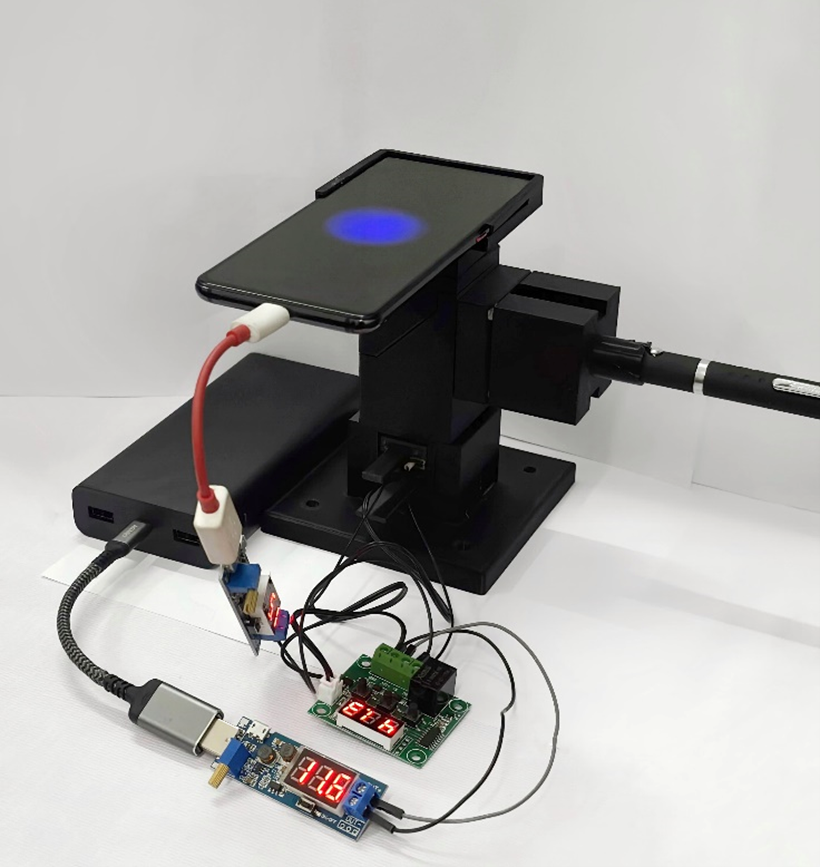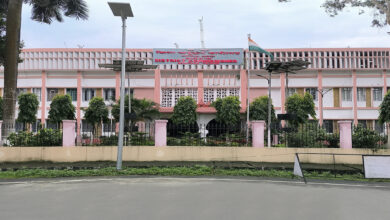
Sonitpur, July 29, 2025 (Tuesday): A team of researchers from Tezpur University has developed an affordable and portable device to detect Tuberculosis (TB) using a smartphone. This new tool, developed by Prof. Pabitra Nath of Department of Physics and his team, is specially designed for use in rural and remote areas where advanced medical facilities are not easily available.
The new device stands out because it does not need any chemicals or dyes and uses the natural glow (autofluorescence) of TB bacteria for detection. The device has a built-in heating system to improve test accuracy and can be operated using a smartphone. Most importantly it is cost effective as it costs under ₹25,000 and weighs less than 300 grams and hence easily portable. This makes it a perfect fit for places with limited healthcare infrastructure.

Currently, TB is a major public health issue in India. Early and accurate diagnosis is crucial to stop its spread. The World Health Organization and India’s National TB Elimination Program currently recommends LED fluorescence microscopy as the gold standard for TB screening. The standard testing method recommended by the World Health Organization needs expensive machines and trained technicians, which are not available in many rural areas. The new device from Tezpur University can solve this problem by making TB testing simpler and more accessible.
“While LED-FM offers higher sensitivity than conventional optical microscopy, it has several drawbacks. It depends on costly equipment, chemical staining agents like auramine-O, and trained personnel for sample preparation and interpretation. Furthermore, its reliance on laboratory infrastructure makes it impractical in many rural settings’, Prof Nath said.
“The device developed by the TU researchers leverages the principle of autofluorescence, a natural property of certain microbial cells, including Mycobacterium tuberculosis (mTB) cells, that emit fluorescence signal when excited by specific wavelength of light. The team’s key innovation lies in the integration of a heating element within the sensor system. By raising the temperature of the bacterial sample, the system enhances the natural fluorescence signal from mTB cells, enabling trace-level detection without the use of stains or dyes”, Prof Nath further elaborated the process.

The research team includes research scholars duo Biprav Chetry and Chunuranjan Dutta from Department of Physics, Dr. J. P. Saikia, Mr. Santanu Goswami from the Department of Molecular Biology and Biotechnology, and Mr. Abhijit Gogoi from Labdig Innovations and Systems Pvt. Ltd.
The team has already filed a patent for the device (Indian Patent Application No. 202431035472), and their findings have been published in the international journal Biosensors and Bioelectronics.
Congratulating the team, Prof. Shambhu Nath Singh, Vice Chancellor of the University said that this innovation has the potential to make a big impact in the fight against TB, especially in rural areas.









